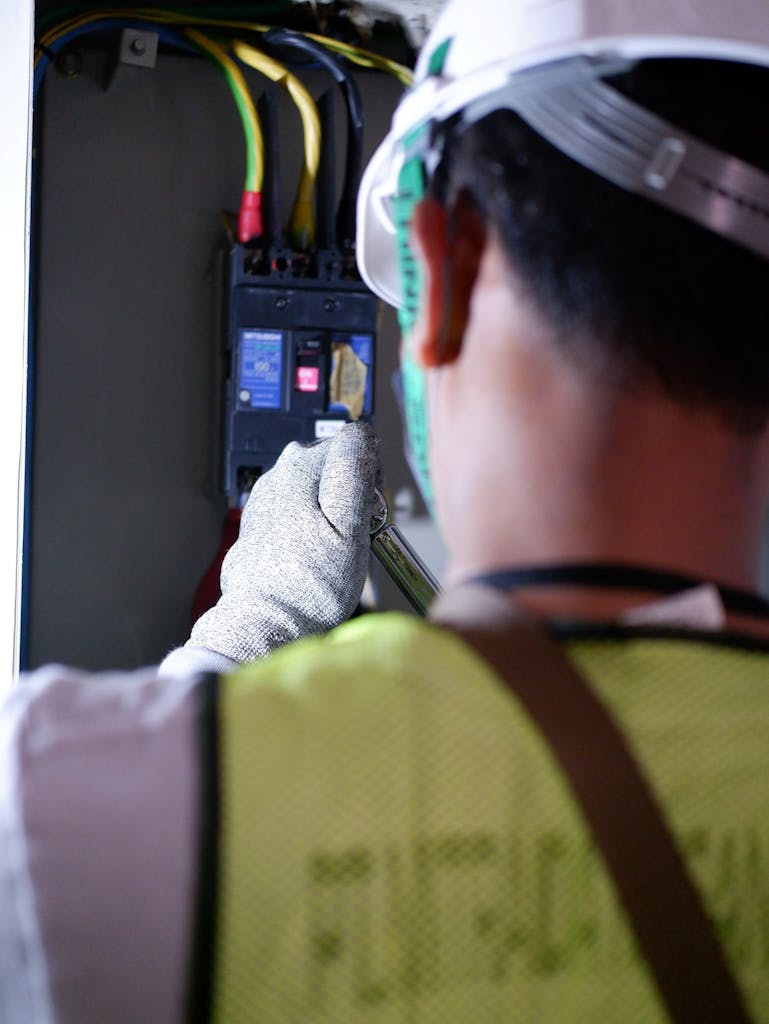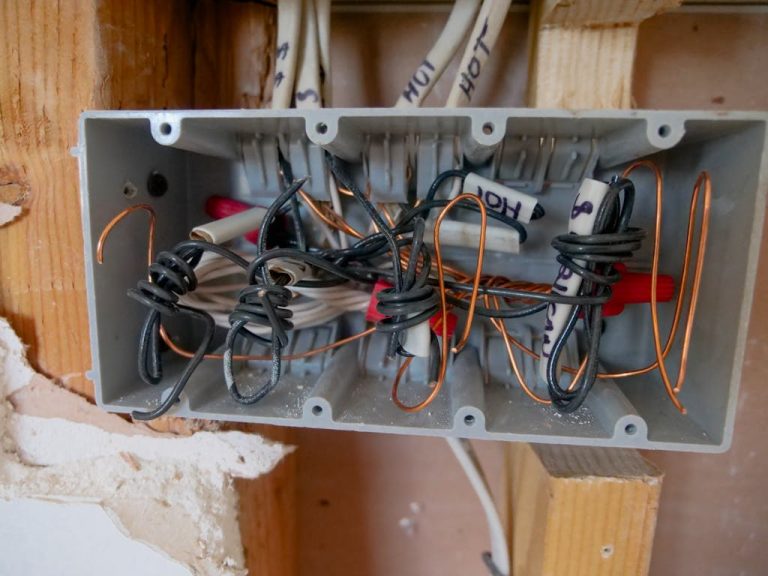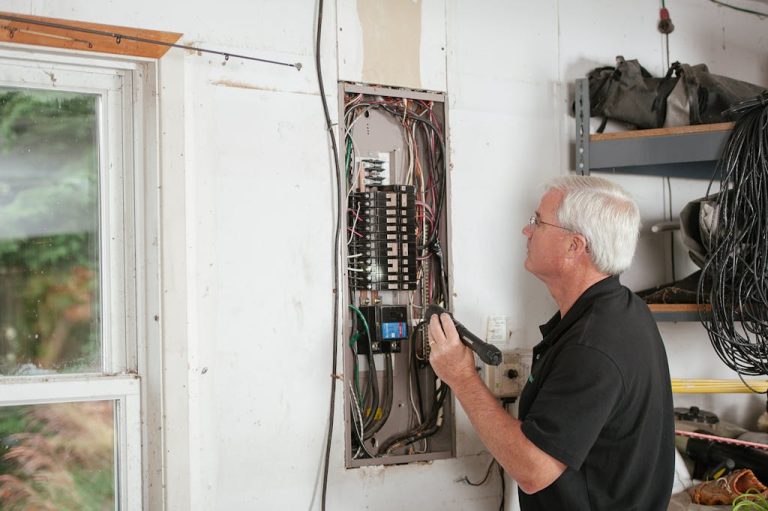The Warning Signs Behind a Tripping Breaker
If your circuit breaker keeps tripping, it’s more than just an inconvenience – it’s your electrical system’s way of telling you something is wrong. Frequent breaker trips can signal overloaded circuits, faulty wiring, or even dangerous faults that make your home non-compliant with South Africa’s electrical safety regulations. Ignoring these warnings could lead to fire risks, appliance damage, or a failed Certificate of Compliance (CoC) inspection.

1. Why Do Breakers Trip? Common Causes
A breaker’s main job is to protect your home from excessive current. When it senses more electricity flowing than the circuit can safely handle, it “trips” – cutting off the flow.
The most common causes include:
- Circuit overload: Too many high-wattage devices on one circuit.
- Short circuits: Hot and neutral wires touching.
- Ground faults: Electrical current straying from its intended path.
- Faulty appliances: Old or damaged equipment causing irregular current flow.
- Degraded wiring: Especially in older homes that haven’t been rewired for decades.
These issues aren’t just inconvenient – they indicate your electrical system may be unsafe and potentially non-compliant under the Electrical Installation Regulations, 2009 (OHS Act, R.242) (source: labour.gov.za).
2. How Professional Fault Finding Solves the Problem
A qualified electrician uses specialised diagnostic tools like insulation resistance testers, clamp meters, and circuit tracers to pinpoint the exact cause of the trip.
At this stage, the electrician will:
- Test each circuit individually.
- Identify damaged wiring or faulty connections.
- Check your earth leakage and residual current devices (RCDs).
- Assess whether your distribution board (DB) is up to current SANS 10142-1 wiring standards.
This isn’t guesswork – it’s a methodical safety procedure that ensures your installation can safely handle modern electrical loads.
3. When Fault Finding Isn’t Enough: Signs You Need a Full Rewire
If your home is older than 25 years, the wiring insulation and connections may have degraded beyond repair. Here are the telltale signs that rewiring may be necessary:
- Persistent breaker trips, even after replacing appliances.
- Burn marks or buzzing around sockets or light switches.
- Two-pin plug points or fabric-insulated wiring.
- No earth connection in older metal light fittings.
- You’re planning renovations or adding heavy appliances (like air conditioners or stoves).
A full or partial rewire ensures your system meets SANS 10142-1 standards – and allows a new CoC to be issued.
4. Understanding the Certificate of Compliance (CoC)
Under South African law, any new or altered electrical installation must have a valid Certificate of Compliance issued by a registered electrician.
A CoC confirms that:
- The installation is safe.
- It complies with the Wiring Code (SANS 10142-1).
- All circuits and earth leakage devices are functional.
If an electrician finds faults that make your system unsafe, they’re legally required to refuse to issue a CoC until all problems are corrected (source: saflii.org).
5. The Dangers of Ignoring Electrical Faults
Continuing to reset a tripping breaker without fixing the root cause can lead to:
- Electrical fires – from overheated cables.
- Appliance damage – sensitive electronics often fail after voltage surges.
- Insurance claim rejection – insurers may refuse claims if your property lacks a valid CoC (source: ecasa.co.za).
It’s not just about convenience – it’s about protecting your home, your family, and your financial security.
6. The Smart Way to Bundle Repairs, Rewiring, and Compliance
When you call a professional electrician, request a diagnostic + CoC inspection bundle. This way, your electrician can:
- Locate and fix faults.
- Replace outdated circuits or breakers.
- Inspect and issue a new Certificate of Compliance in one visit.
This is especially useful if you’re selling your property or renovating. Buyers and real estate agents will require a valid CoC before transfer.
7. What to Expect from Ronald George Electrical
Ronald George Electrical has been providing reliable electrical services across the Cape Town area for over 35 years. Our qualified electricians handle everything from fault finding and breaker tripping issues to full rewiring and compliance certification.
We follow all OHS Act and SANS 10142-1 standards, ensuring your property is both safe and compliant.
Need professional help?
Schedule a breaker tripping diagnostic + CoC inspection with Ronald George Electrical today.
Fast response, safety-first service, and guaranteed compliance.
Final Thoughts
A tripping breaker isn’t just an annoyance – it’s a safety message you can’t afford to ignore. Whether your home needs minor repairs, rewiring, or a full compliance inspection, acting early saves you from major costs and potential danger later.
Don’t wait for a spark to start a fire – get it checked, fixed, and certified.



